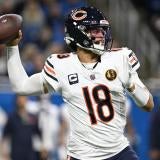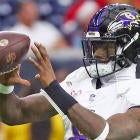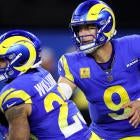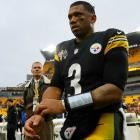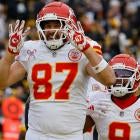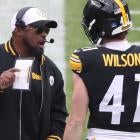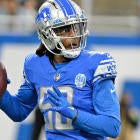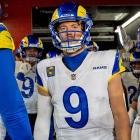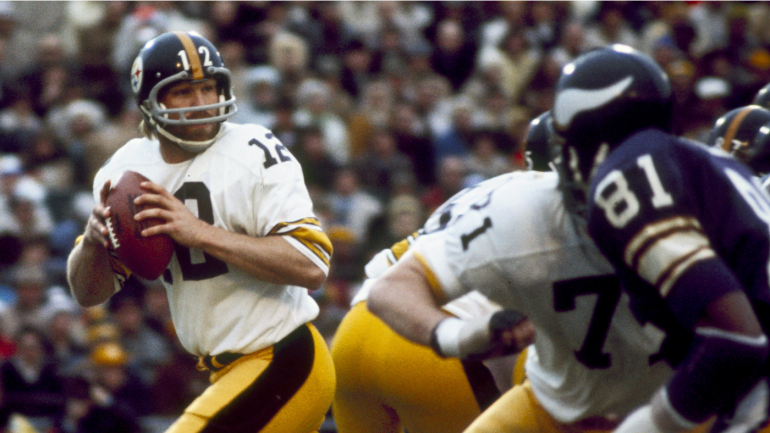
Literally and figuratively, Terry Bradshaw has his hands full. The Hall of Fame quarterback in currently preparing for the second season of his family's reality TV show. He recently teamed forces with Schlotzsky's to promote their new sandwiches that include 30% more meat. Along with being a genuine fan of their food, Bradshaw wanted to team up with Schlotzsky's to help promote a more healthy and balanced diet for young athletes with big-league aspirations.
Bradshaw was enjoying a Schlotzsky's sandwich (ham is his favorite meat on a sandwich in case you were wondering) when he recently sat down with CBS Sports. One of the main topics Bradshaw weighed in on was the NFL's recent decision to expand the regular season from 16 to 17 games. Bradshaw was a unique person to ask about the expanded schedule, as he was the first quarterback to win the Super Bowl after the NFL expanded the regular season from 14 to 16 games in 1978.
"We've got to kind of let it play out," Bradshaw said. "Seventeen games, I'm worried about injuries. I would like to see the roster expanded. I would like to see the pool of players be able to come in and take the place for injured players without having a big limit.
"The game today is not as hard physically as the game in the '70s, which wasn't as hard as the game in the '60s and '50 where nothing was held back (laughs). Bomb away, hit 'em, slug 'em. The game is much more polished, much more sophisticated. The NFL has done an incredible job of trying to protect the athlete …. We'll have an extra game this year to see how the injury total stacks up, if it does at all."

Pick Six Newsletter
Crafted By The Best NFL Experts
Get the day's big stories + fun stuff you love like mock drafts, picks and power rankings.
Thanks for signing up!
Keep an eye on your inbox.
Sorry!
There was an error processing your subscription.
Bradshaw agreed with the idea that an expanded regular season will further diminish the value of running backs. Once the NFL's premier position, the value of a starting NFL running back slightly started to diminish when the NFL went from 12 to 14 regular-season games in 1960. The addition of two regular-season games in 1978 -- along with rule changes that advanced the passing game -- further decreased the significance of the running game.
No one knows this better than Bradshaw. After winning two Super Bowls on the strength of their running game and a dominant defense, the Steelers won Super Bowls XIII and XIV largely relying on Bradshaw's right arm. The second player to win multiple Super Bowl MVP awards, Bradshaw was named league MVP during the league's first 16-game regular season. He put a bow on that season by throwing for 318 yards and four touchdowns -- Super Bowl records at the time -- in Pittsburgh's 35-31 win over Dallas. He capped off the Steelers' dynasty with 309 yards and two touchdowns in Pittsburgh's 31-19 win over the Rams in Super Bowl XIV.
Super Bowl IX 🏆
— Pittsburgh Steelers (@steelers) September 3, 2018
Super Bowl X 🏆
Super Bowl XIII 🏆
Super Bowl XIV 🏆
Terry Bradshaw's trophy case is pretty full. #HappyBirthday pic.twitter.com/ICoHTGCJ8o
While the power back has become a thing of the past, Bradshaw believes that the multi-purpose back will only become more popular with the advent of a 17th game. He specifically mentioned Le'Veon Bell, Alvin Kamara and Clyde Edwards-Helaire as recent running backs who have benefited from the modern-day passing game.
Bradshaw said he would enjoy playing in today's NFL "because you would be throwing the football all the time." That being said, Bradshaw enjoyed the luxury of being able to call his own plays, something that has become a rarity in today's NFL. Bradshaw liked the chess match associated with calling plays against some of the best defenses of his day. And unlike many of today's quarterbacks, Bradshaw had no issue calling a steady diet of plays for his running backs.
"I loved calling a running game," said Bradshaw, who did not eclipse 300 yards passing in a game until Super Bowl XIII (his ninth season). "I liked to be smart at the line of scrimmage, get us out of this running play, put us in another running play. Run three in a row, run five in a row! I enjoyed that as a quarterback. For me, that was a challenge. I enjoyed studying those fronts and how to go after them."
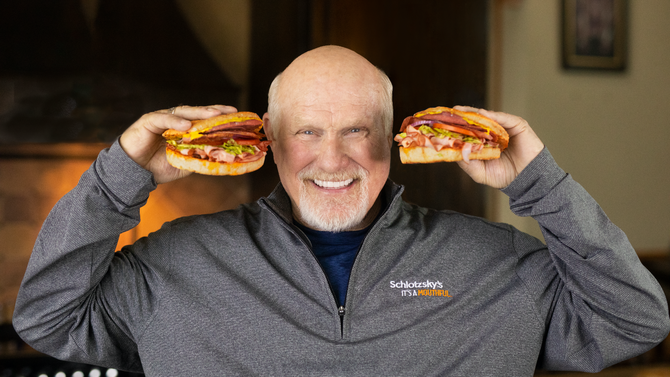
Bradshaw shared a secret behind one of the Steelers' most effective offensive plays during their '70s run: the trap-draw featuring the duo of Rocky Bleier and Franco Harris. The play led to numerous big gains for the Steelers in those days, including Harris' 22-yard touchdown that helped extend the Steelers' lead over the Cowboys in Super Bowl XIII.
"The trapping game was nothing more than an influence game," Bradshaw said. "We only averaged 255 pounds on the offensive line. We couldn't blow people off the ball, so we had to do a lot of influence to get people to freeze up then (smacks his hands). We didn't have a power back anywhere. Rocky would have been our power back, not Franco."
Craving even more NFL coverage focusing on previews, recaps, news and analysis? Listen below and follow the Pick Six podcast for a daily dose of everything you need to follow pro football.
Bradshaw's pride in calling a successful game was reflected in his answer when asked about his favorite game during his time with the Steelers. Instead of choosing one of his better statistical games (this author was convinced he would pick his second Super Bowl win over the Cowboys), Bradshaw picked the Steelers' first Super Bowl win, a win that saw him spend most of the afternoon handing the ball to Harris and Bleier.
"I do have one game," Bradshaw said, "and it was Super Bowl IX against the Minnesota Vikings. Mr. Rooney got his first world title, and he was such a sweetheart of a human being and such a gentlemen. In that game, I threw [14] passes. Franco broke the Super Bowl record for rushing, and I called all those plays, and that made me feel really good. It was after the game, and when we saw [Mr. Rooney] go up on the podium and they presented him with the Vince Lombardi Trophy. All of them mattered, all of them meant something, but that was the one that meant the most."



